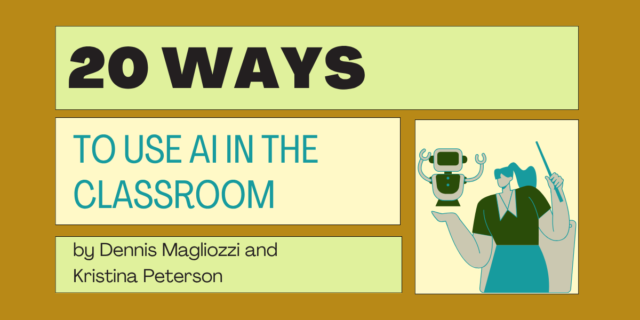
With classroom-tested tips from our Curricular Resources authors on how to improve your teaching of writing at any grade level, each Writing Masters installment will share author insights and practical suggestions on teaching writing in the classroom that you can use the very next day. This week in the Writing Master series, Carol Jago discusses how to reach out to the unengaged writer.
“Some students will continue to insist that none of the ideas generated hold any interest for them. Supplying these students with more of your ideas won’t help and can actually undermine the assignment if the students later blame you for an unsuccessful essay. It was your idea, after all! Assure these students that choosing a topic can take time, but keep the responsibility for choosing with the students.” – Carol Jago
Engaging the Unengaged Writer
By Carol Jago
Writing well is hard. Teaching students to write well is even harder. The task is particularly confounding because so much of what has been said and written about how to teach writing is at odds with how real writers work. For example, “show. Don’t tell.” Plenty of remarkable writers do a lot of telling. “Never use said.” Glance down at the dialogue in a novel on your bedside table. I’ll bet you find repeated he said and she said. “Eliminate all ‘to be’ verbs.” Have you ever tried writing without them? Definitive rules about writing simply don’t hold fast. Although writers make their own decisions about what “rules” to follow when they write, they do seem to have one thing in common: they care about their writing. They are interested and engaged in what or whom they are writing about. How do we get students engaged in their writing?
Let students choose topics to write about.
Sometimes in an effort to make student work more engaging and writing tasks more authentic, we teachers suggest topics that we think would interest our students—hip-hop music, popular culture, sports, video games. However, this approach can keep students trapped inside their own world and unintentionally limit their horizons. Teachers should try to broaden students’ interests and help them become curious about the wider world. I try to push students outside the boundaries of their typical interests. I do this by having students brainstorm topics and then decide which ones hold the most interest for them.
Some students will continue to insist that none of the ideas generated hold any interest for them. Supplying these students with more of your ideas won’t help and can actually undermine the assignment if the students later blame you for an unsuccessful essay. It was your idea, after all! Assure these students that choosing a topic can take time, but keep the responsibility for choosing with the students.
Allow time for research.
My students often begin writing before they have acquired enough knowledge about their subject, and as a result, their essays lack clarity. Their expository prose is garbled and imprecise, both vague and replete with seemingly unrelated details. Students have difficulty with clarity because they frequently fail to see their own subject with precision. If I want their writing to be clear and interesting, smart, and sometimes funny, I need first to help them find and explore a subject that intrigues them and then steer them in the direction of research that will provide them with the necessary background knowledge.
What is often missing from traditional writing assignments is research. Without realizing it or consciously meaning to, we have been requiring students to find all the information they needed for their writing on the hard drive between their ears. A better plan is to require them to learn more about a subject before and as they write. Let them become experts on their topic.
Write in different genres.
Just as students have different interests, as expressed by the topics they choose, some students prefer certain types of writing over others. It’s possible that, for example, by inviting students to write only imaginary stories or about their own experiences we have shortchanged them. This is not to say that writing fictional and personal stories—or any particular type of writing—should be banished from the curriculum. But maybe past practices have overlooked the kinds of writing that could engage those writers who don’t particularly like one type of writing or another. Build students’ interest in and comfort with writing by having them work in genres they like before introducing them to other types of writing.
Many students are offered only lockstep, template-driven writing tasks. No wonder the resultant writing has been lack-luster. Integrated reading and writing lessons on topics that matter to children have the potential to engage students in genuine inquiry. When kids care about their writing, there’s a reason to get it right!
♦ ♦ ♦ ♦
 Carol Jago has taught English in middle and high school for 32 years, is immediate past president of the National Council of Teachers of English, and serves as an associate director of the California Reading and Literature Project at UCLA. Carol served as AP Literature content advisor for the College Board and has published six books for teachers with Heinemann.
Carol Jago has taught English in middle and high school for 32 years, is immediate past president of the National Council of Teachers of English, and serves as an associate director of the California Reading and Literature Project at UCLA. Carol served as AP Literature content advisor for the College Board and has published six books for teachers with Heinemann.
♦ ♦ ♦ ♦
Next week Ralph Fletcher offers suggestions for using mentor texts with young writers and asks “How much mentoring is enough?
Click here to see the full Writing Masters Blog Series lineup, and, using the form below, sign up for email alerts when each new blog is posted.


